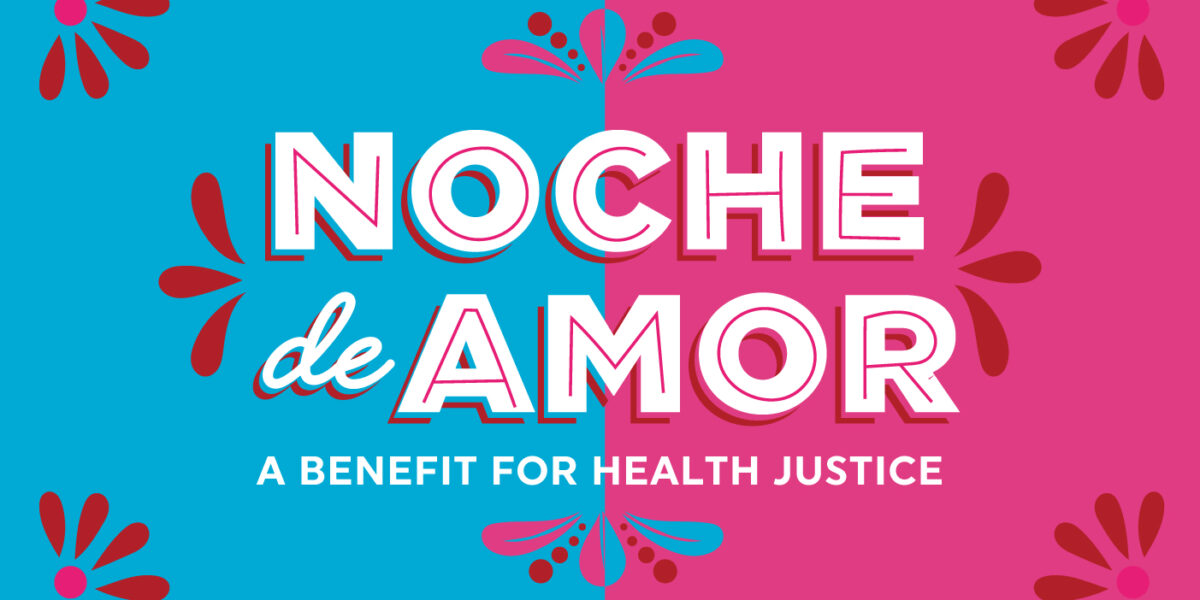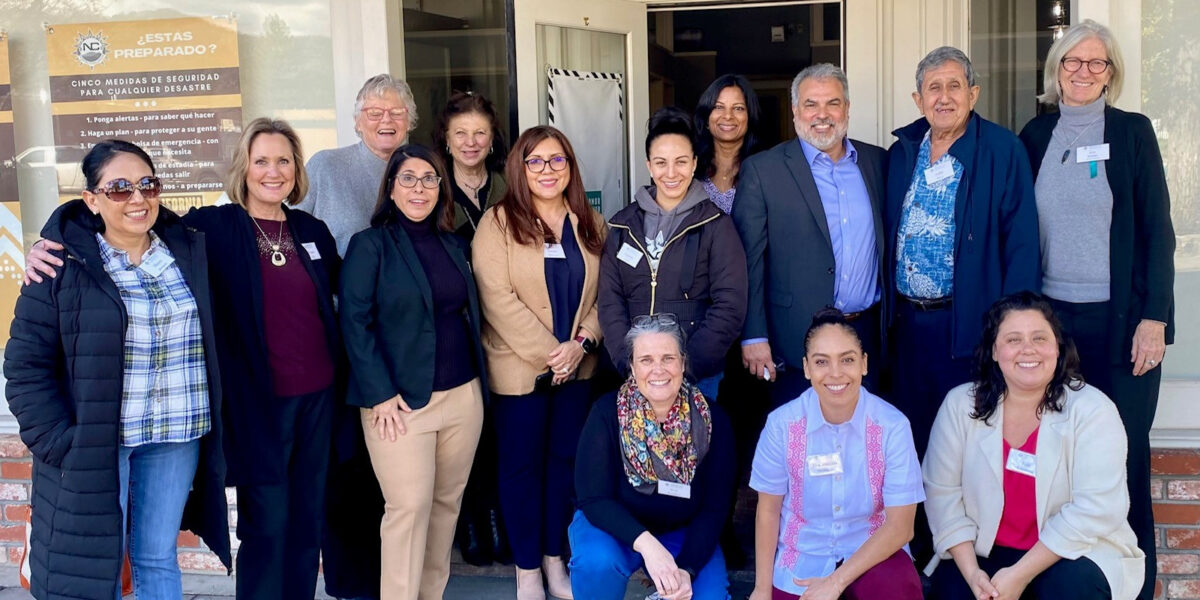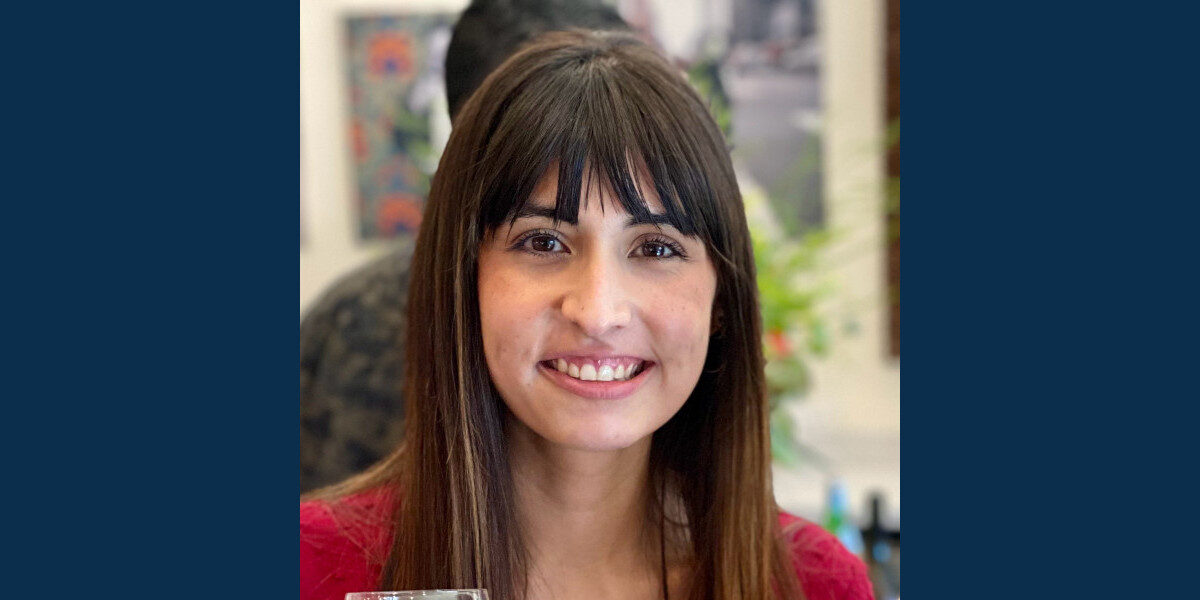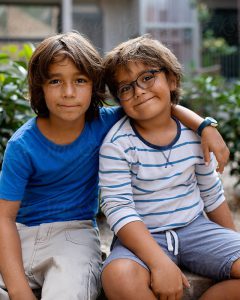
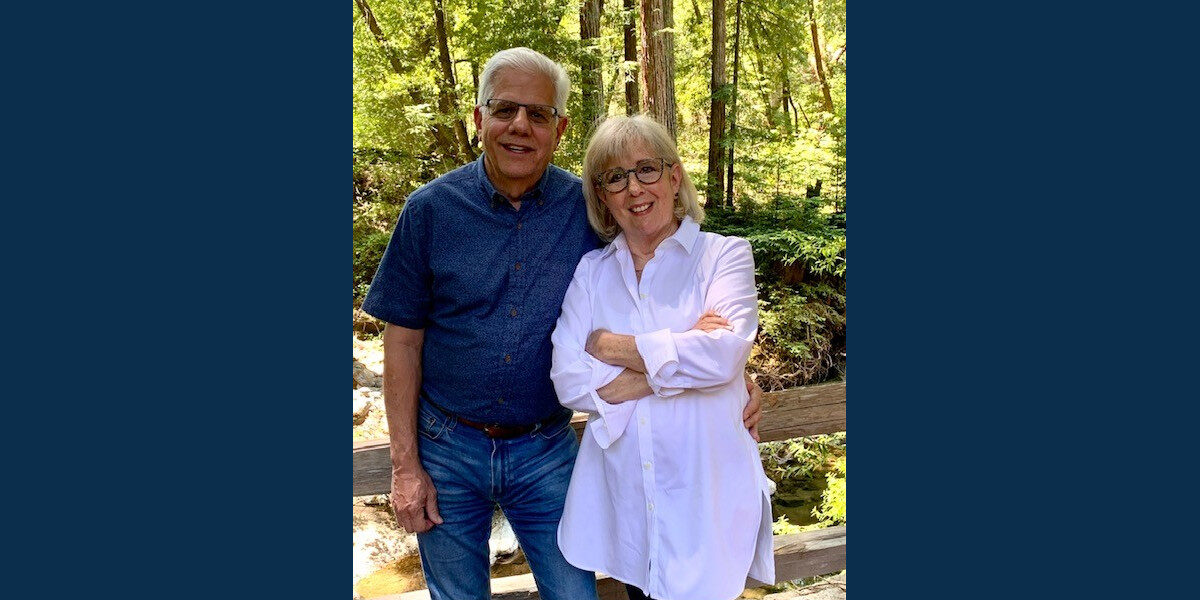
The Mental Health Talent Pipeline Turns 5!
5 min read. An interview with Marc and Jeanie Kahn.
The end of a milestone year seemed a good time to take stock of where the Healthcare Foundation’s Mental Health Talent Pipeline scholarship program has come since its pilot year of 2018, and learn more about the origins of this innovative program—which to date has supported a total of 21 graduate students who, in turn, have collectively served approximately 2,500 unique clients across the region.
We reached out to Marc and Jeanie Kahn, who instigated the conversations that led to the 2018 pilot. Marc and Jeanie’s background in philanthropy dates from 1979 when they began serving on the board of Jeanie’s family’s private foundation. They eventually started their own effort, the Bancroft Foundation, to focus on access to healthcare and environmental justice.
When the couple permanently relocated from the East Coast to their Dry Creek Valley home in 2015, the Bancroft Foundation began to concentrate its funding on advancing a more equitable society in Sonoma County. Marc joined the Healthcare Foundation Board in 2022. Marc and Jeanie have been Healthcare Heroes since 2018.
They spoke to us from Portland, Oregon, during a recent visit to see their grandchildren, about the beginnings of the program, the Bancroft Foundation’s renewed commitment to its success, and their hopes for MHTP over the next five years as it continues to grow and evolve to meet the needs of the community.
You instigated the conversations that resulted in the Mental Health Talent Pipeline. What was the instigating factor for you in doing so?
Marc: When we came here from the East Coast, we wanted to do something that was more impactful than scattershot grants. We had a number of conversations with Debbie Mason, who was the executive director of the Healthcare Foundation at the time. We were facing a convergence of crises. One was the immigration crisis during the Trump administration. There was a lot of insecurity.
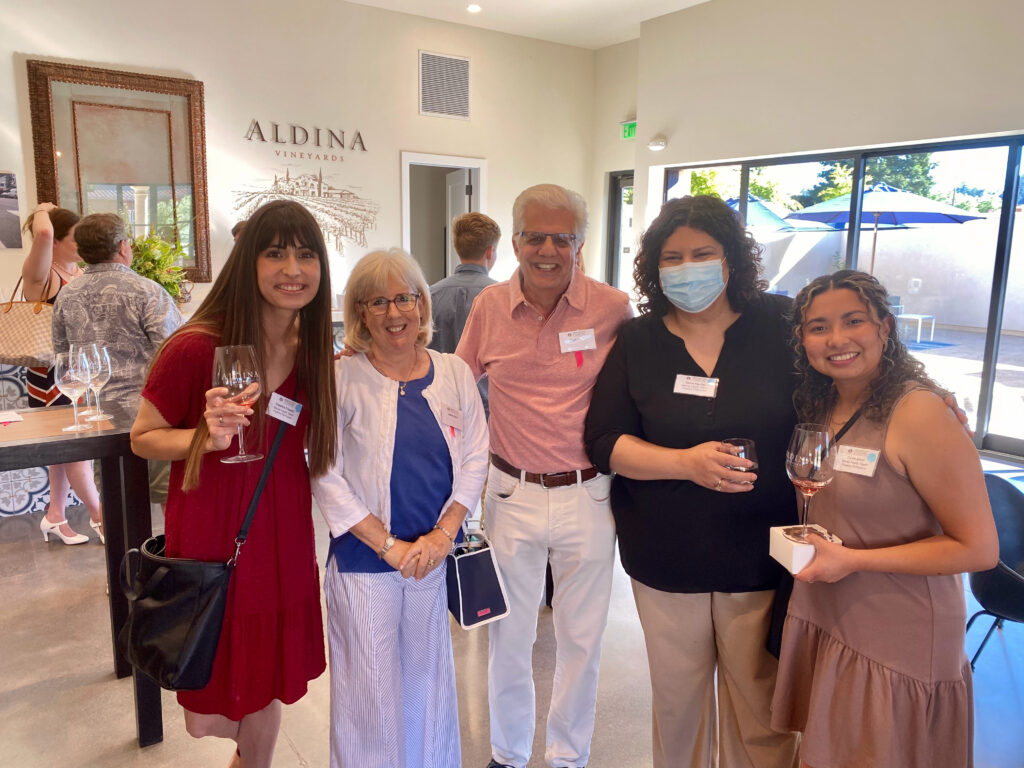
Jeanie: Yes, and that was compounded by the fires. You had people who didn’t know if they had a house and didn’t know if the people they loved were still there in the house. In other words, they didn’t know if ICE had swept through.
Marc: So we saw that there was a lot of trauma in the community. We had some experience with trauma work on the East Coast. This is a different sort of trauma. This is a trauma that is affecting a population that really is underserved and didn’t have the resources to address this trauma.
Jeanie: And I think more importantly, they didn’t feel that it was something that they could get help for. That’s why it’s so important that the students that we work with [in the Mental Health Talent Pipeline] are not just bilingual, but culturally in tune with their clients. Because there are often culturally specific contexts for seeking or not seeking help.
Marc: Sometimes you just don’t talk to your family about mental health.
Jeanie: Yes, and sometimes that’s a problem.
How did you come to approach the Healthcare Foundation?
Marc: We were fresh from the East Coast. Our daughter is a mental healthcare professional, which helped to inform our thinking. We wanted to create a mental health program that would help an underserved population in the area. Debbie Mason at the Healthcare Foundation was very responsive. We had a number of partners that came along with us. Ariel Kelley was one. It was her late father, Dr. Steven Ungerleider, who helped provide some of the funding to get the program going. Also a gentleman named Mark Freed provided a lot of the seed funding. Debbie Mason consulted Dr. Maria Alvarez to help mold the program and find a first student cohort. It was difficult, actually, finding the first student, because we had rather specific criteria. However, once the first student was onboard things followed from there. The next cohort was I believe nine students.
“We’re hoping that people who have gone through this program will not only progress in their careers but perhaps get on boards of organizations, get on boards of healthcare systems, run for political office—we need changes. The demographics of Sonoma County have changed.”
Marc Kahn
Have there been any surprises along the way?
Marc: There have been a lot of surprises. I think the biggest was the expansion to a full scholarship program. We originally intended it as just providing a stipend that would encourage students to make a commitment to stay within the community for at least two years after graduation.
Jeanie: So they didn’t have to make the decision, “Can I afford to stay?”
Marc: But we soon realized that there were a lot of impediments to that. First of all, it’s the expense of getting the education—and not only the schooling but the expense associated with acquiring the requisite hours to become licensed. I think it’s 3,000 supervised hours. Often these hours aren’t paid. So we’ve expanded the program to provide some money for training as well. I give Kim Bender so much credit for expanding the Pipeline from a stipend program to a full scholarship program, and negotiating agreements with the University of San Francisco. It’s been quite successful. We’re now at 21 students who either are currently in the program or have gone through it.
And nearly all of the scholarship recipients are now working in the community.
Marc: It’s very gratifying. And there’s a secondary benefit to all of this, namely leadership development. It’s our hope that some of these new professionals will work their way up and make some systemic changes in the healthcare system.
Jeanie: Yes. Branching out. Mental health is such an overlooked area. Hopefully, some of the graduates will eventually be in a position to impact mental health policy. That is sorely needed.
Marc: We’re hoping that people who have gone through this program will not only progress in their careers but perhaps get on boards of organizations, get on boards of healthcare systems, run for political office—we need changes. The demographics of Sonoma County have changed. And we need a cohort of young leaders.
Jeanie: Definitely. Changes need to be made. For example, one of the first graduates of the program, Luigi Valencia, went on to work with the police department. He now serves as a liaison between the mental health calls and the police, who do not have the training as mental health professionals to always de-escalate a situation. Maybe this is an area where someone like our first graduate can get in there and make those first crucial changes within an organization like the police department that move it in a more trauma-informed direction.
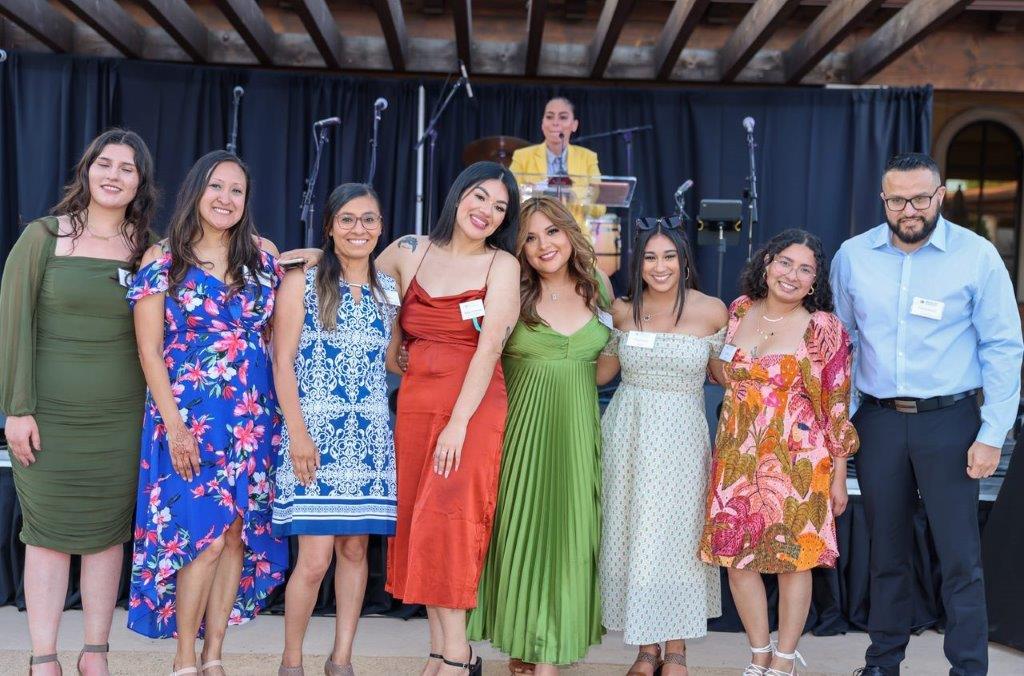
Marc: Luigi is involved in youth diversion programs as well.
Jeanie: Yes. Both are very important roles.
Looking ahead, what are your hopes for the program?
Marc: Within the next five years, we’re hoping to expand the program further. In particular, to create a Native American cohort. There have been discussions. There are a lot of hurdles for the moment but we’re hoping to overcome those.
What are some of these hurdles?
Marc: It’s not just finding an individual student. As Daisy Cardenas has said, you can’t have just one student, you need a cohort. Of course, she knows what she’s talking about. Daisy was part of our first cohort. She’s now on the Board of the Healthcare Foundation and [helping to steer the HOPE program] at Santa Rosa Junior College. Daisy and her cohort, who called themselves the co-madres, were a community. They created a support network among themselves. We hope to create a cohort of Native American mental healthcare professionals.
Jeanie: Also, the political landscape is such that we don’t know what the next five years will bring. We don’t know if these issues will grow even more significant. It’s a huge question mark. But whatever happens will also help to suggest where we go from here: Where is the need?
The Bancroft Foundation has made a generous pledge to partially underwrite the next five years of the Mental Health Talent Pipeline.…
Marc: We have provided a commitment for the next five years that will help the Healthcare Foundation meet its commitment, which is to cover 75% of the scholarships. USF has committed to covering 25% for the next five years, which is great. Now we’re hoping the rest of the community can step up to fill some of the funding gap.
What would you emphasize in inviting someone to join the Bancroft Foundation in supporting this program?
Marc: We emphasize the success of the program. I think that success speaks for itself. We have a great group of students who have either already gone through or are currently in the program. They’re the best ambassadors for it. Each one has a personal narrative that’s so powerful. It is an impressive group of people in terms of who they are, the work they’re doing in the community, the hope for the future that they embody.

Related News + Stories
Invest in Our Community
Your support is vital to our collective vision of eliminating health inequities in northern Sonoma County.
Donate

